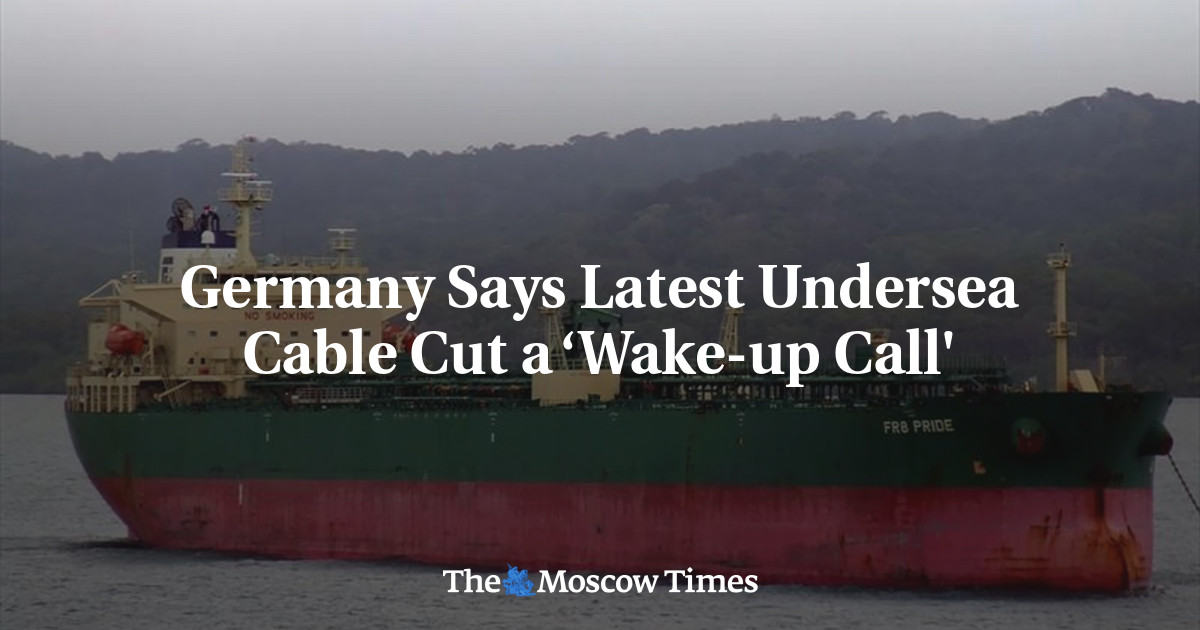Ukraine on Thursday rejected as "absolute nonsense" suggestions it was involved in the 2022 sabotage of the Nord Stream pipelines, which transported Russian gas to Europe via the Baltic Sea.
The Wall Street Journal reported late on Wednesday that Ukraine's then-top military commander, Valery Zaluzhny, oversaw the plan to blow up the pipelines in September 2022.
"Ukraine's involvement in the Nord Stream explosions is absolute nonsense. There was no practical sense in such actions for Ukraine," Ukrainian presidential aide Mykhailo Podolyak told AFP.
"It is clear that the explosions of the Nord Stream pipelines did not stop the war, did not deter Russian aggression, and did not affect the situation on the front line," he said.
"Moreover, such an action significantly strengthened Russia's propaganda capabilities," he added, suggesting Russia had "direct motives" for carrying out the blasts.
Nord Stream's twin gas pipelines, which ran from Russia to Germany under the Baltic Sea, came under intense scrutiny when Moscow invaded Ukraine in February 2022.
Several large gas leaks were discovered emanating from the pipelines in September 2022, with seismic institutes recording underwater explosions just before.
The pipelines were not in operation when the leaks occurred, but they still contained gas that spewed up to the surface and into the atmosphere.
The Journal report came shortly after German media outlets reported German investigators probing the sabotage were now focusing on Ukraine, and had issued an arrest warrant for a Ukrainian man.
'Like a torpedo'
According to the Journal, the idea of blowing up the pipelines emerged during a meeting of senior Ukrainian military officers and businessmen in May 2022, just months after Moscow invaded Ukraine.
Six people were directly involved in carrying out the operation, which cost around $300,000 and was privately financed, the report said.
Using a rented yacht, they sailed out to the area of the pipelines and dived down to lay explosives on them, it said.
Zelensky also initially approved the operation, but when the CIA learned of the plan, they asked him to stop it going ahead and he ordered a halt, according to the report.
Zaluzhny, who was removed from his post earlier this year in a shake-up, pushed ahead anyway, the WSJ said, citing Ukrainian officials.
Zelensky took the military commander to task for going ahead with the operation despite the order to pull the plug, according to the paper.
But the commander replied that once the sabotage team had been dispatched, they could not be called off.
"He was told it's like a torpedo — once you fire it at the enemy, you can't pull it back again, it just keeps going until it goes 'boom'," a senior officer familiar with the conversation was cited as saying.
Speculation has long swirled about who was behind the operation, with both Ukraine and Russia denying any involvement.
A Message from The Moscow Times:
Dear readers,
We are facing unprecedented challenges. Russia's Prosecutor General's Office has designated The Moscow Times as an "undesirable" organization, criminalizing our work and putting our staff at risk of prosecution. This follows our earlier unjust labeling as a "foreign agent."
These actions are direct attempts to silence independent journalism in Russia. The authorities claim our work "discredits the decisions of the Russian leadership." We see things differently: we strive to provide accurate, unbiased reporting on Russia.
We, the journalists of The Moscow Times, refuse to be silenced. But to continue our work, we need your help.
Your support, no matter how small, makes a world of difference. If you can, please support us monthly starting from just $2. It's quick to set up, and every contribution makes a significant impact.
By supporting The Moscow Times, you're defending open, independent journalism in the face of repression. Thank you for standing with us.
Continue
![]()
Not ready to support today?
Remind me later.
 (1).png)
 4 months ago
16
4 months ago
16













